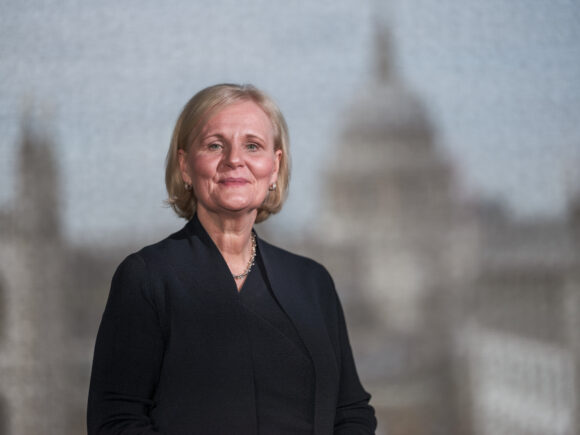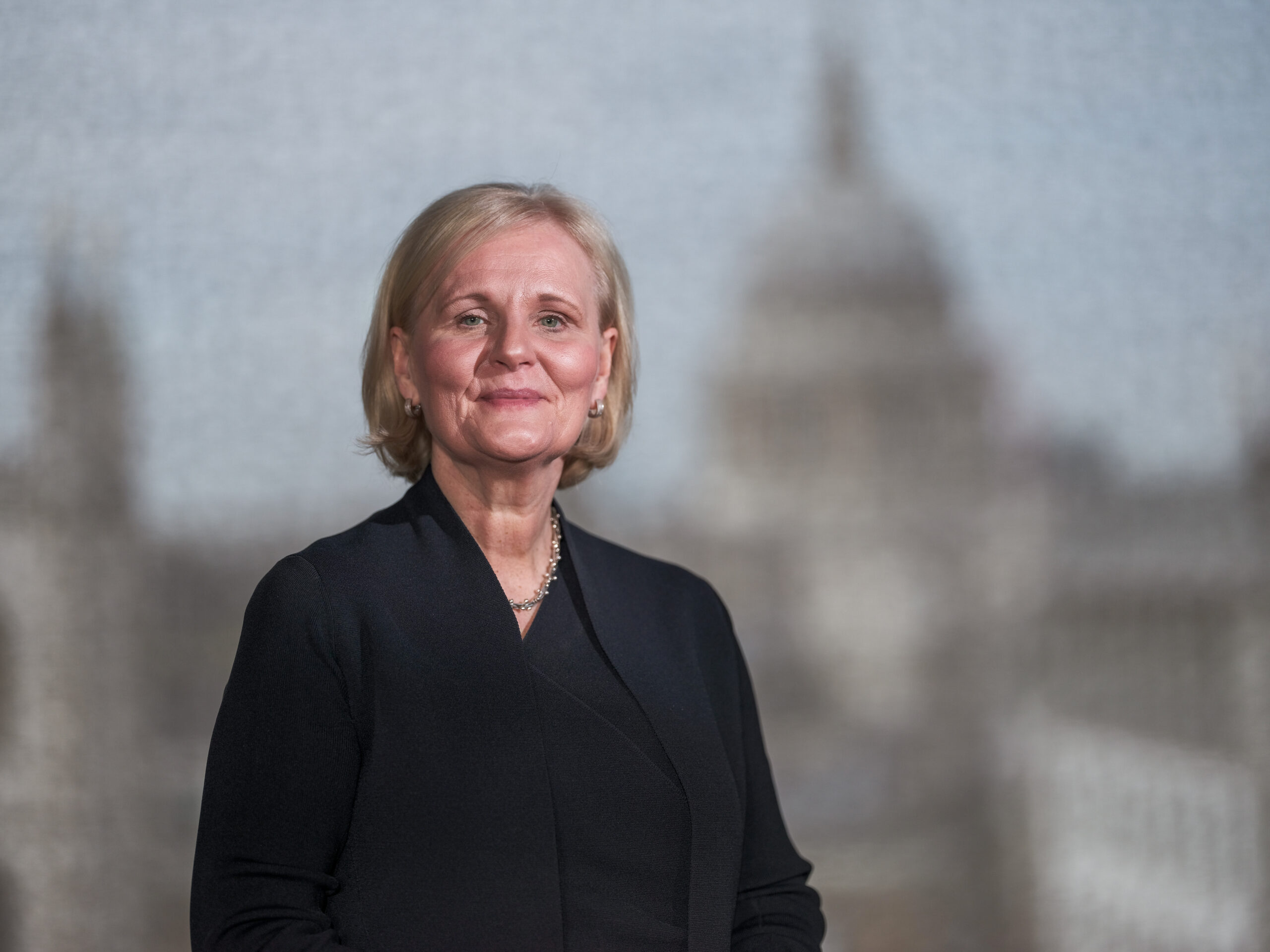Amanda Blanc is determined to steer Aviva Plc to one of the biggest takeovers in its history, a highlight in a storied insurance career where she’s stood up to challenges including activist shareholders and sexist barbs.
If her £3.6 billion ($4.6 billion) plan to combine Aviva with Direct Line Insurance Group Plc that was announced on Friday goes through, it’ll be her largest acquisition on record and the highlight of more than four years of work to transform the insurer — while handing Aviva a rival company run by one of her former lieutenants.
Blanc, one of the City of London’s most influential women, has until Christmas to firm up the transaction, which took several price bumps to get Direct Line’s approval.
Direct Line would be Aviva’s biggest deal since the purchase of Friends Life in 2014, bringing in 3 million motor insurance customers and a chance to cut costs and capital. It could also shield the business from being swallowed by another competitor during a flurry of insurance deals.
“This is a major tactical move, one that will bolster Aviva’s personal lines business in the UK. It will help Amanda strengthen Aviva as the UK’s national insurance champion,” said Andrew Sibbald, who advised Blanc in his former role as chairman of Evercore in Europe.
The deal saw an intriguing face-off and potential reunion between Blanc and Adam Winslow, who oversaw Aviva’s insurance business in the UK and Ireland before taking the top job at Direct Line in March. Winslow has since hired two Aviva executives as Direct Line’s chief financial and chief risk officers. The moves led to some animosity between Blanc and Winslow, people familiar with the matter said, asking not to be identified discussing internal matters.
When asked previously about reported friction with Blanc, Winslow told the Sunday Times: “I respect her… she’s doing her job, but I’ve got my job to do, which is to drive value for shareholders.”
He’s achieved a big payout for the company and himself by securing a bid of 275 pence, although it remains unclear whether he’ll have a role in the combined entity.
Before Aviva pounced in November, Direct Line shares were in a slump, trading below their 2012 IPO price despite a strategy overhaul prompted by takeover interest from Ageas earlier this year. Winslow had repeatedly insisted that the firm could succeed as a standalone business.
Whatever happens, Blanc, 57, has already shaken up Aviva and won round many investors, having faced down detractors including one activist shareholder and later a string of sexist comments at the firm’s annual meeting.
Aviva has divested from France, Poland, Italy and Asia on her watch, refocusing the firm on the UK, Ireland and Canada. When activist Cevian Capital AB sold its holding in 2023, it said Blanc and her team had done an “excellent job.” The shares are up about 30% during her tenure.
“It was immediately clear that Amanda had the ability to execute a complex plan at pace,” said Sibbald.
Former colleagues describe her as disciplined and concrete.
Her status has brought some outdated opinions into the open. At Aviva’s 2022 shareholder meeting, one investor claimed Blanc was “not the man for the job” and another questioned whether she should be wearing trousers.
“This type of stuff used to be said in private, perhaps from the safety of four walls inside an office — the fact that people are now making these comments in a public AGM is a new development for me personally,” she responded on LinkedIn. She said she was used to “sexist and derogatory comments after 30 plus years in financial services.”
Blanc’s career in insurance started in 1989 at Commercial Union, which later became part of Aviva. She joined French giant Axa SA a decade later, and rejoined in 2011 following stints at Towergate Insurance and Groupama. She rose to become head of the UK and Ireland operations, overseeing millions of pensions and policies.
No Compromise
She isn’t known to compromise on her ideas. She quit Swiss insurer Zurich in 2019, eight months after joining as EMEA CEO, after clashes with group boss Mario Greco.
In 2021, she resigned from the Welsh Rugby Union board, calling out the misogyny she had faced during her time at the sporting organization.
Blanc grew up in the Rhondda Valley, one of Wales’s coal heartlands, where her grandfathers both mined. As a teenager she witnessed the industry’s steady decline. In an interview with the Financial Times in 2022, she recalled how “that was incredibly difficult. People would be knocking on the door asking for food, donations for food, the community came together.”
She is one of a handful of Welsh women who’ve built high-profile careers in the City. Fresenius Medical Care CEO Helen Giza and Deutsche Bank’s global head of M&A Alison Harding-Jones belong to the same generation of women from the nation.
“In reshaping Aviva’s portfolio so dramatically, she has demonstrated clarity of thought and an execution drive that not many people possess at this level,” said Sibbald.
Photograph: Aviva CEO Amanda Blanc; photo credit: Hollie Adams/Bloomberg

